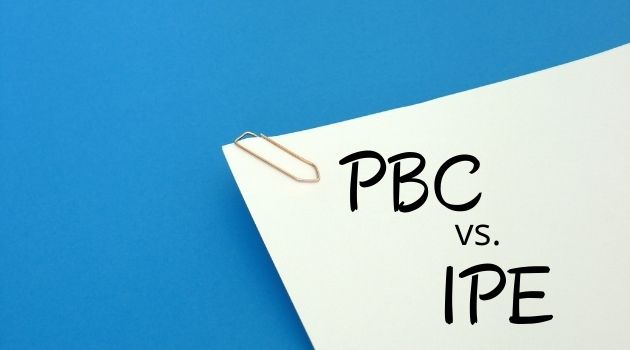What is the Difference between PBC and IPE?

Whenever you are performing an audit, you will typically need to get evidence from the group that you are auditing. This evidence is used to support your audit work and critical to supporting your conclusions. When it comes to audit evidence, an ongoing question is around the difference between PBC and IPE documents. In this post, I’m going to share with you the difference between PBC and IPE so that you are clear on the concepts.

What is PBC?
PBC stands for Provided By Client.
PBC documents are typically documents that have been expressly requested by auditors to support their audit work. This means that the information or evidence has been provided by the client in response to a request by the auditor.
When ‘PBC’ is written or typed on audit workpapers, it clearly differentiates between documents that the auditor created and what the client created/provided. This difference is very critical because it helps those reviewing the workpapers to understand how the provided evidence impacted the audit work. That is, it helps explain which documents provided by the client was used for testing.
When a document does not have ‘PBC’ written on it, then those reviewing the workpapers understand that the document was created by the auditors to support the audit. This means that the document does was not originally sourced from the client which can help explain the extent to which it was used for testing purposes.
So, one key difference between PBC and IPE is regarding the purpose for which the document was created. I will explain that more below.
What is IPE?
IPE stands for Information Produced by Entity
IPE documents are typically documents that a company or client has created to support their own work. For example, this may include reports that are used to perform controls or system generated reports that are provided to support an audit.
It is important to note that companies do not only create reports for audits. They routinely create reports for their own day to day control activities as well. As such, they have a need to document these reports to support how they are performing controls. When reports are used to in support of Internal Controls over Financial reporting, they company also needs to follow the rules regarding validating the reports.
This means that companies also need to show that they validate the completeness and accuracy of IPE reports that are used when performing their controls.
So, as noted above the key difference between PBC and IPE is that PBC is created based on an audit request while the IPE is not.
Based on the explanations above, please note the two key points below about the difference between PBC and IPE.
- A PBC is also an IPE because it is produced or provided by the entity (company or client) that is being audited.
- An IPE may or may not be a PBC if it is not requested by an auditor.

Summary of difference between PBC and IPE
The summarize the differences that were described above:
PBC
- Information requested by the auditor that is provided by the client.
- Using ‘PBC’ on a document helps to differentiate between the document an auditor created and what the client created/provided.
- This is also an IPE because it is produced by the entity (company/client).
IPE
- Information that the entity (company/client) creates. For example, reports used for performing controls or reports provided to support the audit.
- Companies also need to show that they validate completeness and accuracy of IPE reports used when performing their controls.
- This may not be a PBC if it is not requested by the auditor.

There you have it. The difference between PBC and IPE documents. Did this post help you clarify the difference between those two items?
You can also check out these other related posts.
One thought on “What is the Difference between PBC and IPE?”
Comments are closed.
Thanks alot for the teaching and knowledge sharing. It helps me a lot. Keep rocking !!